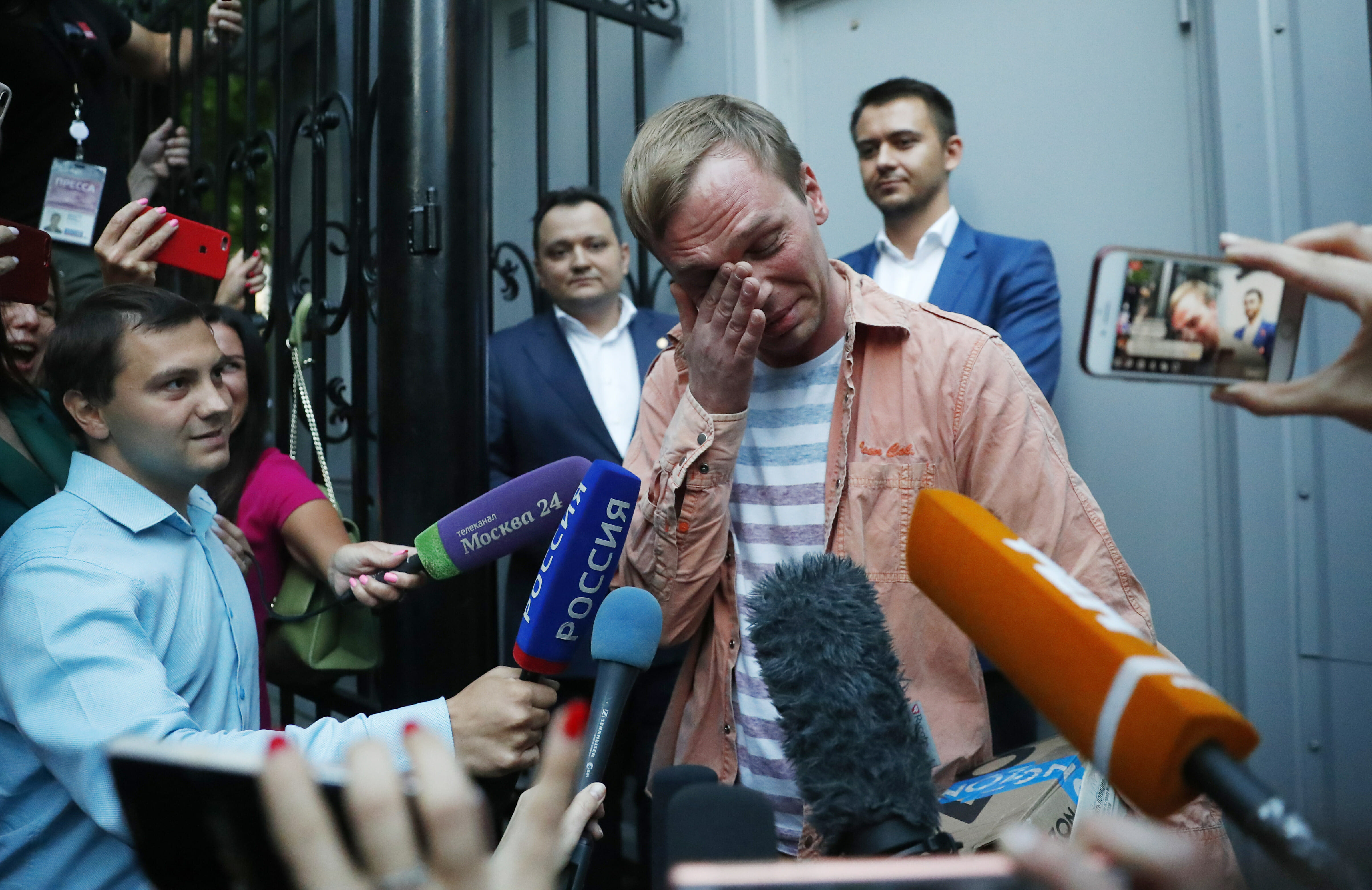
Putin fires police officers involved in journalist's case
MOSCOW (AP) — Russian President Vladimir Putin on Thursday dismissed two senior police officers involved in the arrest of an investigative journalist on drug charges that were later dropped for lack of evidence, in a case that provoked national outrage.
The firings, which came a day after massive arrests at a protest rally in the Russian capital, reflect a careful balancing act by the Kremlin, which seeks to assuage public anger while maintaining a tight lid on dissent.
Last week’s arrest of Ivan Golunov on drug-dealing charges he rejected as sham drew an unprecedented show of solidarity, with three top national newspapers publishing front pages demanding his release. The interior ministry dropped all charges against the reporter on Tuesday in a highly unusual move, and asked Putin to dismiss two senior officers who oversaw the case.
The Kremlin on Thursday announced the ouster of Moscow police’s anti-drugs chief, Yuri Devyatkin, and head of the police department for western Moscow, Andrei Puchkov.
The firings follow arrests at an unsanctioned but peaceful rally supporting Golunov in Moscow on Wednesday.
Moscow police said about 200 people were detained, while independent monitoring group OVD-Info said over 500 were taken into custody and some of them were beaten. The vast majority were released quickly without charges.
Putin’s spokesman, Dmitry Peskov, said Thursday that the Kremlin is aware of complaints about excessive use of force by police and expects an official inquiry to look into that.
Peskov told reporters that the president will consider proposals to revise legislation to prevent police from using drug charges to frame innocent people.
“If such initiative is formulated it will be considered,” he said.
He added that it’s premature to conclude that Golunov’s case highlights an urgent need for sweeping police reforms, saying that the Kremlin would await the results of an official probe.
The decision to drop charges against Golunov and fire police generals responsible for his arrest marked an unusual shift for the Kremlin, which has staunchly backed law enforcement officials in other cases widely seen as trumped up.
Observers say that this time the damage from Golunov’s arrest was too big for the Kremlin to stick to the familiar pattern. They also say that the officials allegedly involved in fabricating the case were too insignificant to merit high-level protection.
“Moscow police’s expectations for political support were rooted in their belief that the Kremlin wouldn’t act against those protecting its own security, and that was a major mistake,” analyst Tatiana Stanovaya wrote in a commentary for Moscow’s Carnegie Center.
Stanovaya noted that the Kremlin was angry to see a big image problem resulting from a case apparently driven by personal interests of minor officials.
“Golunov was freed not only because of public outrage, but because those who arrested him have no political value for Putin,” she wrote. “In the world of Putin, they are like dust.”
The Western Journal has not reviewed this Associated Press story prior to publication. Therefore, it may contain editorial bias or may in some other way not meet our normal editorial standards. It is provided to our readers as a service from The Western Journal.
Truth and Accuracy
We are committed to truth and accuracy in all of our journalism. Read our editorial standards.
Advertise with The Western Journal and reach millions of highly engaged readers, while supporting our work. Advertise Today.












